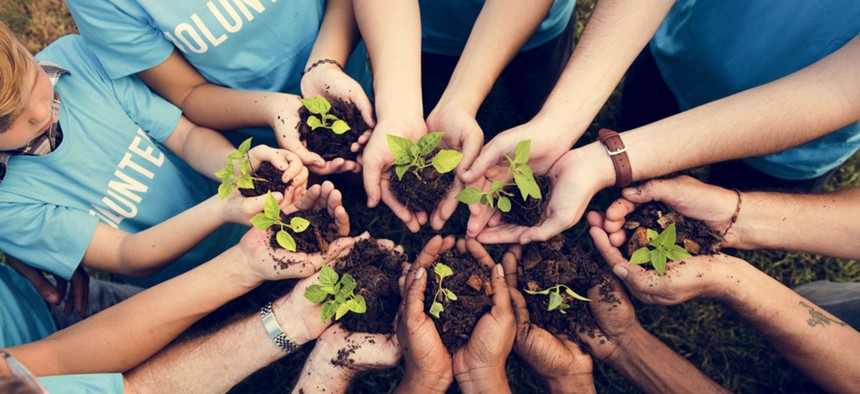
Rawpixel.com
How To Do The Maximum Amount Of Good With The Skills You Already Have
You're probably already in a place where you can make a difference.
In 1999, a trio of researchers in the UK published a cost-benefit analysis on charity skydives, fundraisers in which regular people with zero skydiving experience collect pledges in exchange for the promise that they’ll hurl themselves from an airplane.
For every £1 raised, researchers found, the well-intentioned skydivers in their sample actually cost the National Health Service £13.75 in parachute-related injuries—particularly ironic, given that 70% of the jumps studied were for NHS-related charities.
But people still jump from planes, run marathons, and do other laborious stunts that do not, in themselves, further the worthwhile cause they’re meant to be supporting. Behavioral economist Christopher Olivola termed this preference for effort in charitable giving the “martyrdom effect.” In the right context, it can be valuable—people do donate more money to fundraisers requiring some kind of arduous task. But confusing effort for efficacy can also work against one’s ultimate objective, and blind us to the maximum amount of good we can achieve with the tools and talents already at our disposal.
In a forthcoming working paper, Olivola and his colleague Bennett Foddy asked subjects to compare two hypothetical U.S. doctors. One works in dangerous conditions for Medicins Sans Frontieres for an annual salary of $18,000 and saves 200 lives a year at work. The other earns $700,000 per annum in a fancy private Hollywood practice, donates $20,000 per year to MSF, and in doing so saves 500 lives per year. When asked who did the most good for others, and who they admired more, a majority of respondents named the MSF doctor.
Of course, somebody has to be on the front lines delivering care and working for change. That may indeed be the career you want to train (or re-train) for. But assuming that you do not at this moment possess the resources and skills to personally perform emergency surgery in conflict areas—or, for instance, to reunite undocumented children with the parents they’ve been ripped from at a border detention center, or to restore power on a hurricane-ravaged Puerto Rico—does that mean you do nothing?
In many cases, the most efficient and effective way to support causes you care about is to donate to effective, well-managed people and organizations already well-versed, well-placed, and working directly for change. That’s the argument of 80,000 Hours, a charity co-founded by Oxford University ethics professor Will MacAskill. The initiative, named for the number of working hours in an average career, offers practical, evidence-based guidance on maximizing the amount of charitable work a person can do using their current skills and resources.
There may be little in this that appeals to people whose goal is to get noticed. But if your goal is to make sure that the work you admire gets done, it’s worth thinking about the most efficient ways to make that happen. You may just find that you are already in the best place to make a difference in the work that you truly care about, right where you are.






